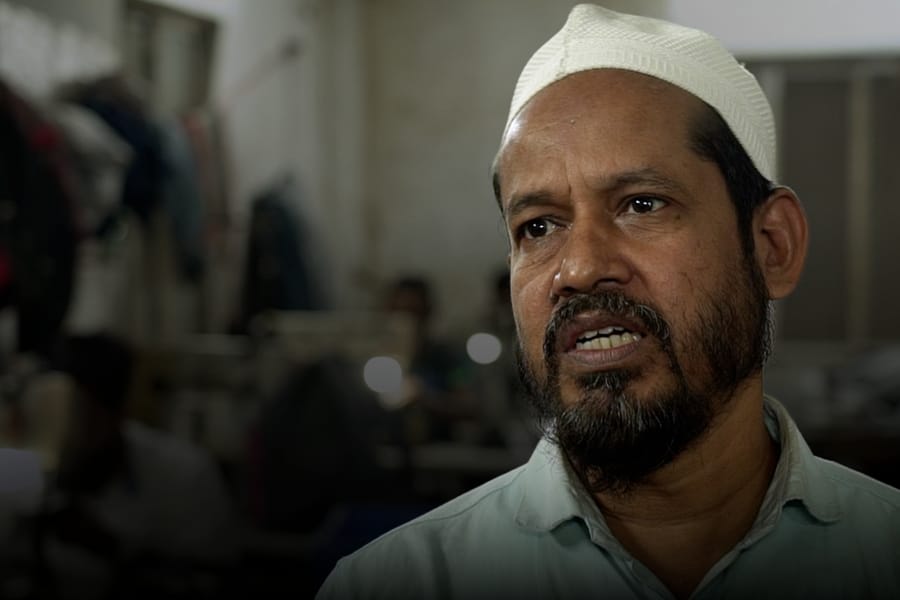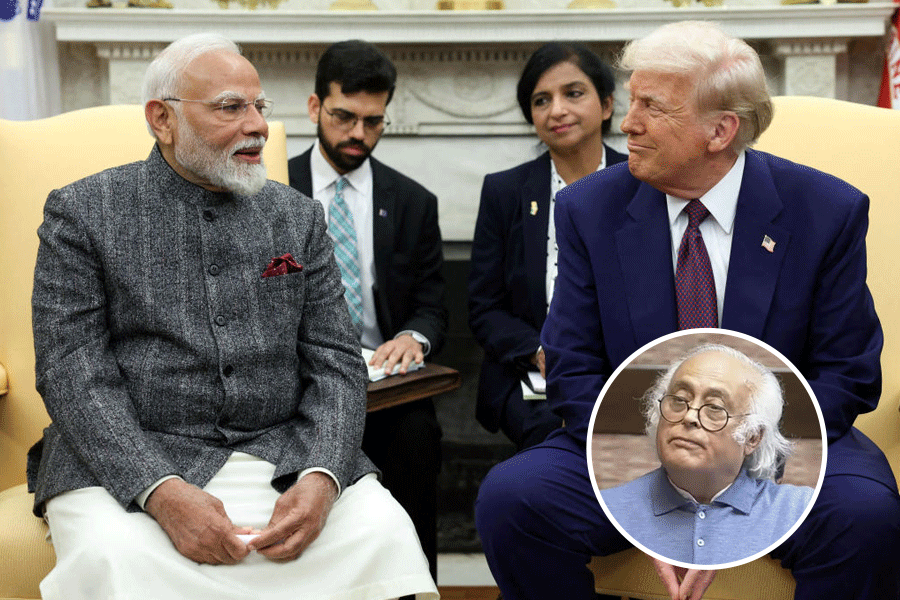Something that the Italian composer, Ennio Morricone, said in an interview many years ago about Gregorian chants inspiring his music reminded me that Nirad C Chaudhuri had similar taste in music.
Morricone, who died this week, aged 91, at his home in Rome, scored around 500 films, including Days of Heaven, The Mission, Cinema Paradiso and Quentin Tarantino’s The Hateful Eight, which won him an Oscar. His haunting theme, “Chi Mai”, for the 1981 BBC drama The Life and Times of David Lloyd George became an international hit.
He once said that the Gregorian chant, which dates back to the time of Pope Gregory I (590-604AD), “is linked to the history of our European culture and constitutes its important musical roots”.
The Gregorian chant is described as “the central tradition of Western plainchant, a form of monophonic, unaccompanied sacred song in Latin (and occasionally Greek) of the Roman Catholic Church”.
When Niradbabu died at his home at 20, Lathbury Road, Oxford, on August 1, 1999, aged nearly 102, no one could make out the scribble on a note left on his bed — until his youngest son, Prithvi, deciphered it as “Gregorian chants”. A recording was duly played at Niradbabu’s funeral four days later in Oxford crematorium in accordance with his wishes.
Popular choice
In what must be a record for an author, the dramatization of Vikas Swarup’s debut novel, Q&A (later turned into the film, Slumdog Millionaire), on BBC Radio 4, was followed immediately by another of titles, Six Suspects. Both adaptations, by Ayeesha Menon, seem perfect for radio. Indeed, I stopped working in the garden so I could listen to an episode of Six Suspects, whose plot, as summarized by the BBC, will remind Indians of the Jessica Lal murder case in Delhi in 1999: “Vicky Rai, notorious son of a prominent Indian politician, shoots dead a waitress at a trendy Delhi restaurant. At a lavish society party to celebrate his acquittal, he is himself murdered. Who did it?”
Vikas, currently secretary (west) at the ministry of external affairs in Delhi, confides: “The lockdown and home quarantine have provided space to catch up with my reading. I’ve read The Silent Patient by Alex Michaelides in fiction and The Room Where it Happened: A White House Memoir by John Bolton and Sapiens: A Brief History of Humankind by Yuval Noah Harari.”
And here are five books he would take to a desert island from which there was little hope of immediate rescue: “In no particular order, Disgrace by JM Coetzee; Nineteen Eighty-Four: A Novel by George Orwell; The New York Trilogy by Paul Auster; The Wind-up Bird Chronicle by Haruki Murakami; and Train to Pakistan by Khushwant Singh.”
Idyllic charm
A note from the National Trust for Places of Historic Interest or Natural Beauty claims that the charity bought a nine-acre site on the borders between Devon and Somerset, where RD Blackmore set his 1869 novel, Lorna Doone: A Romance of Exmoor. When my father acquired a TV set shortly after we arrived in England, the BBC was showing an adaptation of what remains one of the most romantic tales in the English language. It tells of the family feud between John Ridd, an honest and upright farmer, and the villain, Carver Doone. The Doones had killed Ridd’s father. The twist is that Ridd by chance meets and falls in love with Lorna Doone. Just as Lorna is about to marry John, Carver bursts into the church, aims a gun at her and fires.
Blackmore wove real events and places into his novel — some of which figure in the lands bought by the National Trust. They include Badgworthy, the fictional home of the Doones and now a ruined settlement, and a 17th-century stone bridge over the river in Malmsmead. April Braund, visitor experience manager for the National Trust, says: “For those familiar with the book, RD Blackmore’s descriptions of the Exmoor landscape are at the heart of the site — ‘a deep green valley, carved from out the mountains in a perfect oval... wooded hills swept up to the sky-line... a little river glided out from underground with a soft dark babble, unawares of daylight; then growing brighter, lapsed away, and fell into the valley’.”
These days there is much debate provoked by the “Black Lives Matter” movement about whether Britain is a racist country but for me, idyllic England is defined by novels such as Lorna Doone.
Inside news
Like most people I glance through newspapers to find out what is going on but for the stories behind the stories, I rely partly on Private Eye. The satirical magazine points out that The Daily Telegraph was quick to cover the Hinduja vs Hinduja court battle, featuring the family’s 84-year-old patriarch, Srichand Hinduja, and his daughter. The story was “eerily similar (to) one in which an 85-year-old tycoon (with his daughter) is suing his three nephews plus a grand nephew.” Private Eye added that “the case of Barclay vs Barclay is currently anonymised, indeed non-existent: the paper still hasn’t published a word about it.” The dispute is over the sale of the Ritz Hotel, owned by the Barclay twins who are also proprietors of the Telegraph group.
Footnote
If Rishi Sunak wishes to avoid an early return to the backbenches, my advice to the chancellor of the exchequer would be to try and be more unpopular. A recent Delta poll for the Mail placed him dangerously ahead of all others in the cabinet. “The poll reveals Mr Sunak is more popular than Prime Minister Boris Johnson,” it emphasized. If he is not careful, Rishi, who presented a “jobs, jobs, jobs” budget, may discover that in British politics, nothing fails like success.











